US Lawmaker Decries Iran’s ‘Egregious Decision’ To Keep Nuclear Monitoring Off
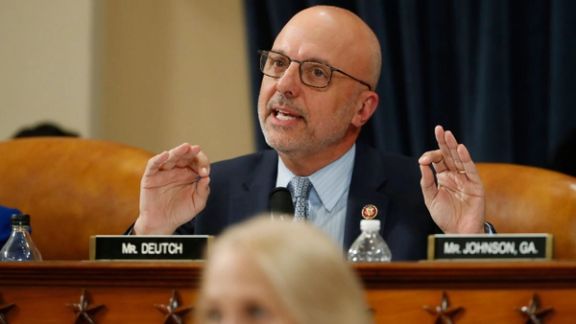
A US lawmaker has expressed concerns about Iran’s not turning on the UN watchdog IAEA’s monitoring cameras until a nuclear deal is revived.

A US lawmaker has expressed concerns about Iran’s not turning on the UN watchdog IAEA’s monitoring cameras until a nuclear deal is revived.
Florida's Democratic Representative Ted Deutch said on Monday that Tehran’s decision is extremely worrying, underscoring his “deep concern about how any nuclear deal with Iran can be verifiable and enforceable.”
He described the decision as “particularly egregious” after Rafael Mariano Grossi, the director general of the International Atomic Energy Agency (IAEA), reiterated that Iran's nuclear program is "galloping ahead," and saying that the IAEA would lose its understanding of the state of Iran's program if the cameras were not restored in three or four weeks, a window that has since passed.
“Moreover, Iran also just declared that it will not answer IAEA’s outstanding questions about uranium particles found at undeclared nuclear sites in Iran, directly contradicting the censure resolution that was overwhelmingly passed by the IAEA Board of Governors last month,” Deutch added. Tehran’s relations with the agency have particularly soured since the June’s resolution.
The US congressman highlighted that such announcements “reflect Iran’s dangerously escalatory nuclear behavior,” saying that he is glad about the US commitment to ensure that Iran will never acquire a nuclear weapon – which was strengthened by the Jerusalem Declaration.
Iran’s atomic chief Mohammad Eslami said Monday Iran would not switch on nuclear-monitoring cameras turned off in June until the 2015 nuclear deal, officially known as the JCPOA (Joint Comprehensive Plan of Action) is restored.
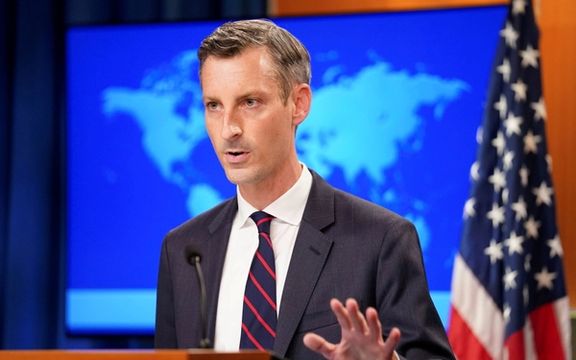
Washington says that lack of a response from Iran on the nuclear talks is an indication that Tehran is not serious and not ready to re-enter the JCPOA.
State Department spokesperson Ned Price in his daily briefing on July 25 said, “And in fact, every day that they drag their feet or every day that is filled with nothing but silence on their end, it’s an indication to us that they are not serious and that they are not ready to re-enter the JCPOA on a mutual basis.”
The comments came one day after chief of Iran's nuclear program, Mohammad Eslami said that Tehran will not allow monitoring equipment of the International Atomic Energy Agency (IAEA) to operate until the JCPOA is restored.
At the same time, the director general of the IAEA, the UN nuclear watchdog, Rafael Grossi told the Spanish newspaper El Pais on July 22 that Iran’s nuclear program is “galloping” forward. He added that enriching uranium at 60 percent is not needed if there are no military intentions, referring to Iran accumulating highly enriched fissile material that can be elevated to weapons-grade uranium in a relatively short time.
Grossi also told CNN on Monday that Iran keeping IAEA’s inspectors away and monitoring cameras off at its nuclear installations leaves the international community blind as to what is really taking place there. “We are saying this is relevant. They have to restore all our inspection capabilities, that if they want to be trusted confidence must be there,” he told CNN and added, “In the nuclear field the only way to have confidence is to be inspected.”
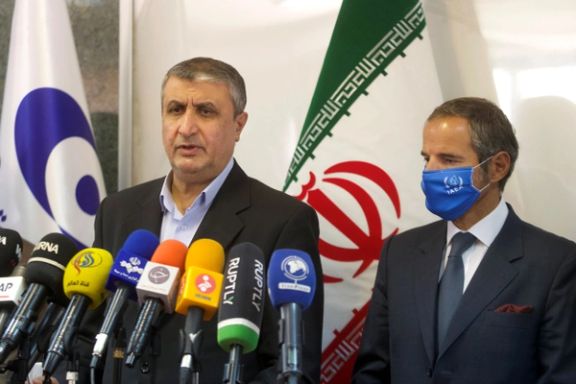
Asked about Iran’s announcement that IAEA cameras will remain turned off until an agreement is reached on JCPOA, Ned Price said this was “extremely regrettable, to put it mildly.” The State Department spokesperson went on to warn that Iran’s behavior regarding inspections “only complicates the challenges associated with a potential mutual return to compliance with the JCPOA. It only deepens the nuclear crisis that Iran itself has created.”
Iran began limiting IAEA inspections and boosting uranium enrichment in early 2021, after the incoming Biden administration had clearly indicated its desire to restore the 2015 nuclear deal.
Price was also asked what Iranians want in order to accept a deal presented to them last December, which the US and its European allies say was a fair offer. He responded that he will Tehran say publicly what they demand and mentioned the possibility that the Iranians may not be planning to restore the JCPOA.
“We are clear-eyed about our Iranian interlocutors. And that’s why for some time we have been preparing equally for scenarios in which there is a mutual return to compliance with the JCPOA, and a scenario in which there is not a mutual return to compliance with the JCPOA.,” Price said.
But he reiterated the administrqation's position that it will cointinue to pursue the diplomatic path, since it believes a negotiated return to the JCPOA still is in US interest.
He also referred to President Joe Biden’s trip to the Middle East earlier this month and his discussions with Israel and other allies about threats Iran poses to the region. Biden pledged to Israel and Saudi Arabia that the United States would not allow Iran to produce nuclear weapons.
Price said that the contingency of Iran not returning to the JCPOA “was a focus of President Biden’s trip to Israel, and to Saudi Arabia, where he also had an opportunity to meet with leaders of the GCC+3. But these are discussions that we’ve been having for some time.”
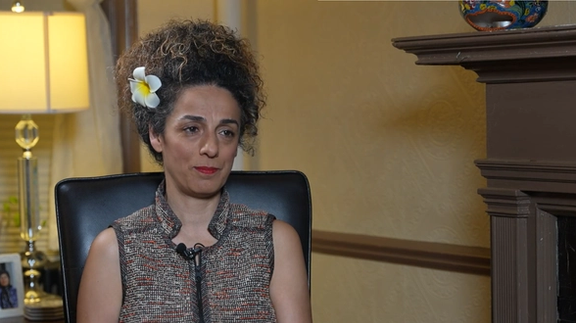
A women's rights activist with over 7 million followers on Instagram has warned that Iran may be manipulating the platform’s moderation system in its own favor.
In an op-ed entitled “Does Instagram Have a Problem with Iranian Dissidents?” in the Washington Post on Monday, the US-based activist Masih Alinejad recounted her recent problems with Instagram including loss of access to Instagram’s ‘live’ feature. She said this happened right after she posted a video of a confrontation on a city bus in Tehran between a hijab-wearing woman and another who refused to cover her head.
The video posted by Alinejad went viral on social media and had over 2.5 million views on her own account within a short time.
Ali Khan-Mohammadi, the spokesperson of Iran’s Headquarters For Enjoining Right And Forbidding Evil, tasked with promoting the Islamic Republic’s interpretation of Islamic laws, said on Saturday that based on the Islamic Republic’s Penal Code any cooperation and sending videos to Alinejad could result in one to ten years imprisonment.
Khan-Mohammadi argued that sending material to Alinejad would be considered as collaboration with “enemies and hostile media networks” because since 2021 she has been “an official member of the CIA”.
Asked by the Washington Post to comment, an Instagram representative said the restriction “was placed on Masih’s account incorrectly because of a technical issue,” explaining that the platform automatically issues restrictions “when our systems detect spammy behavior.” The representative added: “It is against our policies to take action on accounts at the request of the Iranian government.”
But Alinejad is not convinced and says it is not some random glitch as it appears there even a more serious issue. Some fellow Iranians have not been able to find her on Instagram despite having an officially verified account and millions of followers.
“Technical issues happen; social media restrictions aren’t necessarily proof of censorship or nefarious influence. But there’s a troubling pattern here,” she wrote.
“Why did the system restrict my account right at the moment when I was about to promote a protest against compulsory hijab? If algorithms have the power to restrict accounts, can the Iranian regime game those systems in its own favor?” she asked while mentioning that human factor could be involved.
In the past few months other Iranian activists and groups have complained about restriction on public access to their Instagram direct messages as well as removal of hashtags, videos, and posts related to ongoing protests in the country.
In May, a Persian-language content moderator for Instagram and a former content moderator told BBC Persian that Iranian intelligence officials offered them money to remove Instagram accounts of journalists and activists. Both content moderators also accused some Iranian colleagues of exhibiting "pro-regime bias" when reviewing posts on the photo-sharing service.
The former content moderator who spoke on condition of anonymity told the BBC that he "personally knew some reviewers who supported the Iranian regime and received instructions from Iran".
Both the current and the former moderator worked for the Germany-based Persian-language moderators’ group of Telus International, the third-party company responsible for dealing with reports and complaints from Instagram and Facebook users.
In May, Iran International also complained about its videos from protests in Iran being removed by Instagram.
Instagram which has around 45 million users in Iran is the only major social media platform not blocked in the country where other platforms such as Facebook, YouTube, WhatsApp, Twitter, and Telegram cannot be accessed without the use of internet blockage circumvention software and VPNs.
Iran has one of the world’s worse internet censorships, with tens of thousands of websites blocked since the early 2000s and most social media platforms banned. In the absence of free media and the very high level of censorship, many Iranians turn to social media for political news and information.
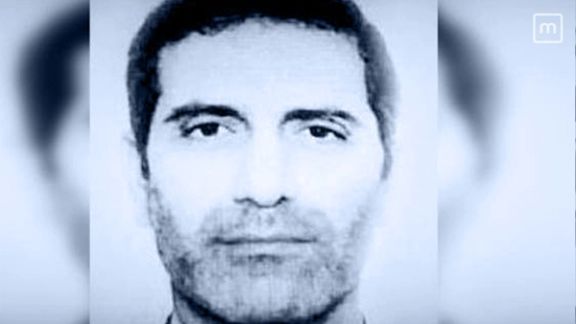
Iran's government has presented a Prisoner Exchange Treaty with Belgium to the Parliament, which was already ratified earlier this month by Belgian lawmakers.
He made the move on Monday as Tehran is pushing to finalize a deal on the expatriation of convicts between Iran and Belgium so that they would serve their sentences in their home countries. Critics fear that the treaty will pave the way for the release of Assadollah Assadi, a former Iranian diplomat serving a 20-year prison sentence in Belgium for “attempted murder and involvement in terrorism” for his role plotting to bomb a gathering of the exiled Albania-based opposition group Mujahedin-e Khalq Organization (MEK) near Paris in 2018.
Following several postponements and complaints by Belgian and US politicians, the contentious treaty was ratified by the Belgian parliament on July 20, however, a court in Brussels temporarily stopped Assadi’s extradition on July 22, pending “cross-examination before a judge” through an adversarial procedure – a hearing where both proponents and opponents of the prisoner-swap deal with Tehran -- including victims who had registered as civil parties to the trial – be present or represented by a lawyer.
Also on Monday, Belgian parliament member Michael Freilich told Iran International that the reports of a possible US request for Assadi’s extradition are not confirmed, but the possibility of a US request should not be underestimated.
He was referring to claims by Darya Safai, an Iranian-born member of Belgian parliament, who tweeted earlier in the day that Washington is planning to ask Belgium for expatriation of the former Iranian diplomat to the US in order to prevent his return home.
Freilich noted that the United States can make such a request because many senior American officials were also present at the gathering of the Iranian opposition group in France, which was supposed to be attacked by terrorists. He added that he is in correspondence with his contacts in the US Congress and the State Department regarding the issue.
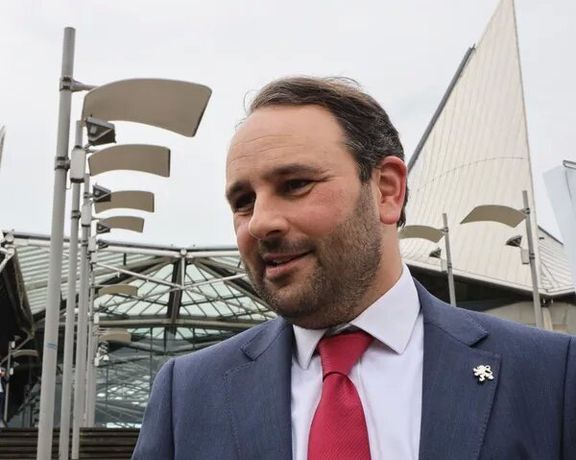
He said that today is a sad day for all those who take the issue of fighting terrorism seriously, because this agreement will actually embolden the Iranian regime in its terrorist activities.
Belgium’s Justice Minister Vincent Van Quickenborne says that the assessment of the Belgian security service was that the treaty would decrease security threats for Belgians living and working in Iran.
Two Belgian newspapers reported on Monday that Washington is considering to request Assadi’s extradition, saying that the Department of Justice plans to try him in the US.
There are unconfirmed reports about the possibility of an exchange to secure the release of a Belgian man jailed in Iran since February under “espionage” charges.
Iran International broke the news that Tehran has detained a Belgian aid worker, identified as Olivier Vandecasteele, another example of the often-used Iranian tactic of imprisoning foreigners as hostages to exchange them with certain Iranians jailed in Western countries. Iran arrested the 41-year-old aid worker just when it was negotiating the treaty in question, which shows its lack of good will.
In the past years, 49 European citizens have been arrested in Iran. Eighteen of them are still in prison. Two of them have been killed, one has been executed and one died due to lack of medical access, Van Quickenborne claimed earlier in July.
Iran’s chief justice Gholam-Hossein Mohseni-Ejei also reiterated calls on Monday to release Assadi as well as former Iranian jailor Hamid Nouri, who was sentenced to life in prison on July 14 for his role in a purge of political prisoners in Iran in 1988.
He was charged with “war crimes, crimes against humanity, torture, and participating in the continued crime of refusing to return the bodies of executed prisoners to their families.” He has denied any wrongdoing and said plaintiffs' allegations were a "completely imaginary story".
Sweden arrested Nouri, now 61, upon his arrival in Sweden in 2019 and in 2021put him on trial over the mass execution and torture of prisoners in July and August 1988. Most victims were linked to the MEK but there were also some with links to leftist and secular groups.
There are allegations that Iran seeks to exchange Nouri with Swedish-Iranian scientist and academic Ahmad-Reza Djalali arrested on vague charges of espionage and collaboration with Israel in 2016 and sentenced to death in 2017.
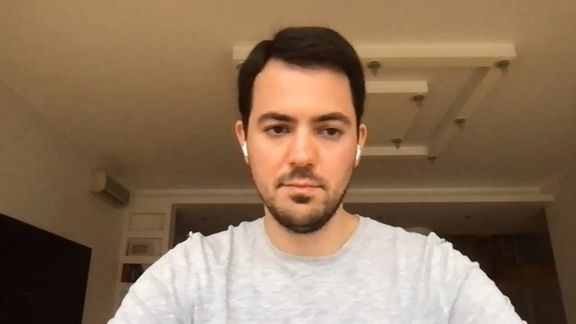
Russia and Iran are allies in the Ukraine war and it won’t be a surprise if Tehran supplies drones to Moscow, an adviser to President Volodymyr Zelensky says.
In an interview with Iran International on Monday, Alexander Rodnyansky an economist at Cambridge University commented on the possible provisioning of Iranian military drones.
“We have to view it in that perspective that Iran and Russia are allies in this conflict. In Ukraine, we obviously have no illusions about this. So, we are obviously very aware of what's going on, and we're going to be very careful about our relationship with Iran and what we hear from Iranian authorities when it comes to Ukraine,” he told Iran International.
United States National Security Adviser Jake Sullivan warned earlier this month that Iran was planning to sell drones to Russia to be deployed in Ukraine. US officials followed up by more warnings about a possible deal that could cause more civilian deaths.
Rodnyansky argued that he sees Russia increasingly resembling the authoritarian regime in Iran in recent years. Saying that repression and other dictatorial traits have been adopted by Moscow, he said, “Now it has really become a full autocracy, you could almost say a dictatorship…we should be very cognizant of the fact that Russia under its current leadership is trying to build the Iranian type of model as a state.”
He went on to say, “It's this repressive type of regime that uses deception, lies, manipulation and terror constantly to stay in power and pursue its agenda.”
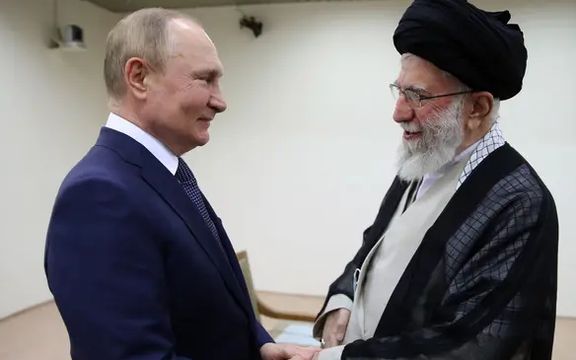
He argued that close ties between Moscow and Tehran and the possibility of a drone deal should be viewed from this perspective, although Iranian officials have been trying to deny reports of arms transfers.
“We know what type of regime it is, and we know that just as in Russia, you can't really trust any single word that comes out of the (Iranian) officials' mouths,” Rodnyansky said, underlining that Ukraine will believe Iranian assurances only when it sees concrete proof.
When the Russian invasion of Ukraine began in February, Iran tried to exhibit neutrality, calling for an end to hostilities, but blaming the West for triggering the war by expanding NATO. But since then, Tehran has adopted a more aggressive tone toward the West as it has refused to accept a nuclear deal offered in the Vienna talks to revive the 2015 agreement known as the JCPOA.
On July 24, two Iranian hardliner newspapers called for standing with Russia in the Ukraine war, after the country’s Supreme Leader Ali Khamenei threw his support behind Putin last week when the Russian leader visited Tehran. Khamenei called the attack on Ukraine a “praiseworthy initiative.” One newspaper close to the Revolutionary Guard called for “pre-emptive” war against NATO, arguing that if the West wins in Ukraine, Iran will be the next target.
Asked about this statement, Rodnyansky said it is nothing more than what Russia has been trying to advance even since before it commenced its invasion.
“And now we hear Iran is just repeating that exact same narrative. And that tells us that these regimes are very much in line, in sync, and very much allied when it comes to this conflict and the current war in Ukraine, and the conflict with the West,” he argued.
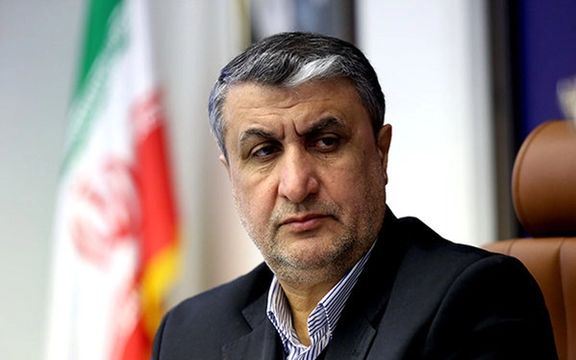
Iran’s atomic chief Mohammad Eslami said Monday Iran would not switch on nuclear-monitoring cameras turned off in June until the 2015 nuclear deal was restored.
Tehran’s relations with the International Atomic Energy Agency (IAEA) have soured since the agency’s board, made up of 35 member states, passed June’s resolution critical of Iran’s alleged failure to supply adequate information about its pre-2003 nuclear work.
Eslami said Tehran would not go further in answering IAEA questions over this work, despite the dissatisfaction expressed by agency director-general Rafael Mariano Grossi in his report to June’s IAEA board at Iran’s explanation of uranium traces in sites not declared as nuclear-related.
Eslami was quoted by state media as saying the file on pre-2003 work had been “closed” at the time of the 2015 agreement, the JCPOA (Joint Comprehensive Plan of Action). “They should know that closed items will not be reopened,” Eslami said. “The basis of the nuclear accord was a response to those alleged cases.”
Following the passage of the June IAEA board resolution – moved by the United States and three European countries, and opposed by Russia and China with India among those abstaining – Tehran said it would remove some IAEA monitoring equipment, that had been kept in place under a temporary arrangement reached with Grossi in February 2021.
Iran had agreed to this ‘extra’ equipment staying, even though it had decided in December 2020 to reduce cooperation with the agency to the basic level required by the Nuclear Non-Proliferation Treaty (NPT).
Talks in Vienna tried for a year up to March to reach agreement between Iran and six world powers over restoring the JCPOA, which had imposed strict limits on the nuclear program and gave the IAEA enhanced inspection powers. But when the US in 2018 left the JCPOA and imposed ‘maximum pressure’ sanctions, Tehran responded after 2019 by expanding its nuclear program beyond JCPOA limits and by February 2021, in response to parliamentary legislation restricting IAEA access. The parliamentary bill was introduced the day after the US presidential election and passed after a nuclear scientist was assassinated near Tehran.
‘Politically motivated’
While the role of the IAEA is essentially technical, June’s resolution has further enmeshed it in the wider dispute over JCPOA restoration. The US and Iran, both in Vienna talks and in June’s European Union-mediated talks in Doha, have failed to agree which US sanctions are incompatible with the 2015 agreement.
Iran's foreign ministry spokesman Nasser Kanaani said Monday Grossi was displaying "unprofessional, unfair and unconstructive views” and called on him to “refrain from politically motivated statements.”
In an interview with Spanish newspaper El Pais published July 22, Grossi said the Iranian program was “advancing at a gallop” while the agency had “very little visibility.” Repeating his remarks reported in May, the IAEA chief was quotedthat “no country that does not have warlike developments enriches at that level, at 60 percent.”
Iran expanded enrichment from the JCPOA limit of 3.67 percent to 4.5 percent in July 2019, and to 20 percent in January 2021 after. President Hassan Rouhani in April 2021, following an attack on the Natanz nuclear facility, announced enrichment to 60 percent, saying the move would enable Iran to attend negotiations“with an even fuller hand.”